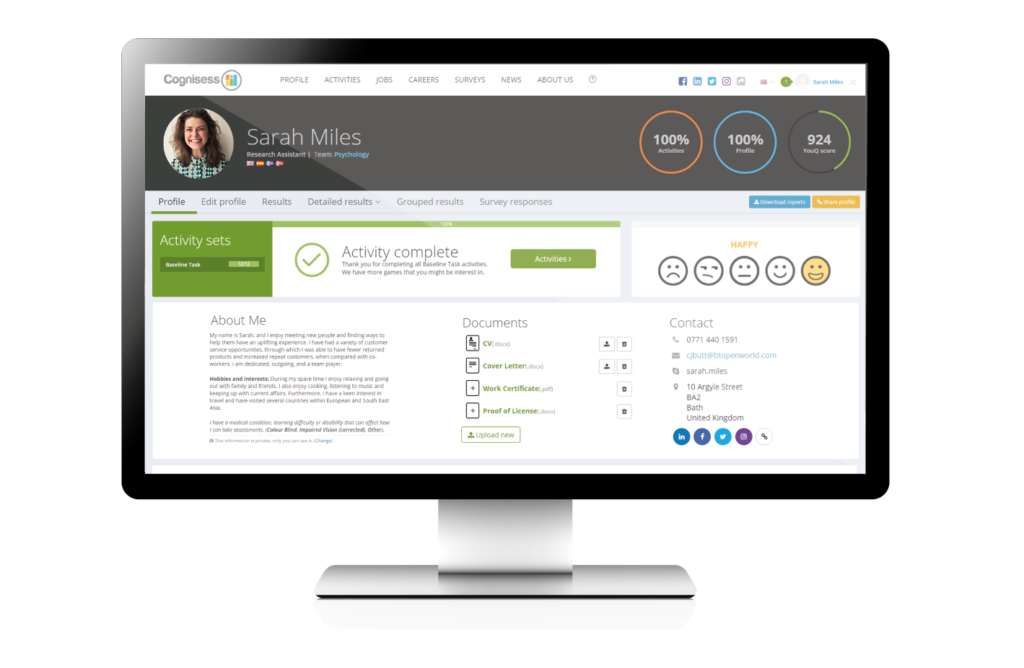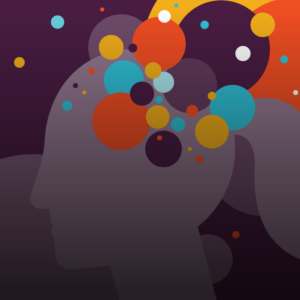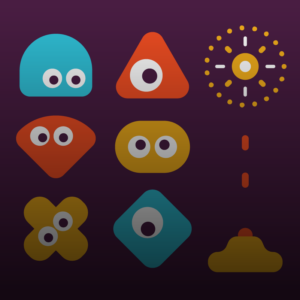Humans unconsciously process 11 million pieces of information per second. In order to manage this mass of data, our brains have had to adapt by creating ‘shortcuts’ to help us make decisions. Without this, we would be paralysed into making no decisions or just random ones. But this approach adopted by our brain can lead to patterns of illogical thinking – this is called cognitive bias.
It is thought there are at least 175 types of biases, this diagram allows you to explore all of them. But to keep things simple, we’ve grouped the biases into four types of typical hurdles the brain encounters every day:
- Too much information – Our brain uses a few ‘shortcuts’ to condense information. A key aspect of this is humans are drawn to details that support their existing beliefs. An example of this was uncovered in a research paper by Harvard Business School. They discovered employers aren’t prejudiced against women because of their gender, but because they have the perception that men perform better in certain tasks.
- Lack of information – In contrast, when there isn’t enough information our brain fills in the gaps. This includes filling in characteristics of a person or a group from prior history or stereotypes. We also assume people we are familiar with are better than people we don’t know.
- The need to act fast – When we need to make a decision quickly we tend to choose the option that is the least risky to avoid mistakes and preserve our status in a group.
- What should we remember? In a world packed with information, our brains need to decide which elements will prove useful in the future. Our minds have created a few methods to enhance storage space, for example, the brain prefers generalisations over specifics because they take up less space.
How can bias affect the recruitment process?

Unfortunately, we can’t eliminate these biases and they can sometimes seep into the recruitment process. In a recent study, researchers sent a number of CVs to businesses. These applicants had similar levels of experience, the only aspect which differed were their names – the applicants either had stereotypical black, Latino or white names. They also asked a group of people to physically hand in their CV at a number of companies, again, they each shared similar qualifications but were different ethnicities. The researchers found that white applicants received 36% more callbacks than African Americans and 24% more than Latinos. The study also uncovered that racism in hiring hasn’t changed since 1989. Although we all want to ensure a recruitment process is as fair as possible and we may not intentionally be applying bias, our brain is automatically applying these bias ‘shortcuts’ to make decisions quickly.
Being unconsciously biased is an inherent part of being human – even if we try to avoid it or correct ourselves. So, once we realise we can be prone to unconscious bias despite our best efforts, we should be turning to AI as a helpful tool to help keep us compliant and open up the recruitment process.
How can AI transform the recruitment process?
Our Chief Scientific Officer, Dr Boris Altemeyer, revealed to Information Age that “AI doesn’t have to understand its own unconscious bias, because it has none. AI does not need diversity and inclusion training. It’s incapable of taking an instant dislike to someone, secretly wondering whether someone’s planning on starting a family, or hiring someone who’s pleasingly similar to them.”

As AI isn’t human it has the capacity to be completely objective. This can be used as a tool to help HR create a fairer recruitment process. For instance, Cognisess Pro, our market-leading recruitment platform driven by AI, makes it optional for candidates to disclose age, gender, race or the schools they went to and can also hide this information from assessors too. More significantly, this personal information is never taken into account for Cognisess assessments – our system is mostly interested in assessing how your brain works. This way recruiters can focus purely on what matters when hiring an applicant. This is called blind recruitment and it provides decision makers with an in-depth understanding of a candidate’s suitability for the role, regardless of background, age, gender or ethnicity to create an environment for recruiters to make objective and well-informed decisions about a candidates potential.
The Cognisess platform is data-driven with over 50 assessments to choose from and measures over 120 human attributes. The insights created from this data has been proven to assist companies like AB InBev, CIL and IHG make better informed and fewer bias decisions about recruitment and assessments. For example, hotel giant IHG has recently ensured a gender equality of 93.75% through their recruitment process using Cognisess Pro, enabling a fairer and more accurate approach to talent management compared to their more traditional recruitment processes.
Attract more talent, increase your diversity
There are many benefits of using an AI recruiting platform like Cognisess Pro. Using this software provides an opportunity to increase diversity in a company’s workforce. A more diverse team can equate to a more profitable company, a McKinsey report uncovered that “Companies in the top quartile for racial and ethnic diversity are 35 per cent more likely to have financial returns above their respective national industry medians.” It can also attract more talent to apply for a company with 67% of applicants wanting to join a diverse team.

As our brains have over 175 individual biases, it can be hard to be sure we are making a totally objective hiring decision. It makes sense to use AI as a tool to facilitate a fairer and more efficient process to help us accurately hire the best person for the role – every time. It is incorporating the best of both worlds, a recruiter’s years of experience with AI’s objective stance. Adopting AI in HR has never been easier. Our team of People Analytics experts can guide you through the first steps of adding AI to your HR processes. If you would like to find out more please get in contract or book a FREE demo of Cognisess Pro, the most advanced People Analytics and AI Assessment Platform on the market today.


